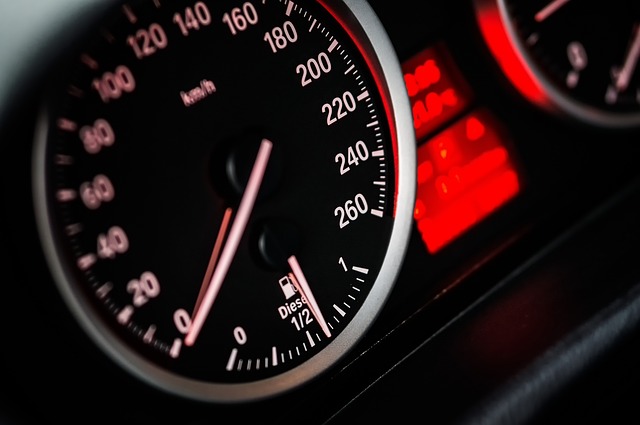When settling a Personal Contract Purchase (PCP) agreement in the UK and returning your car, it's crucial to understand the factors that determine your final payment. The GFV (Guaranteed Future Value) set at the start of the contract and the condition, mileage, and market value of the vehicle at the end of the term are key elements in calculating this figure. To avoid surprises, you should review your original PCP contract and compare the car's actual state against the contract terms. Any disparity between the GFV and the actual market value affects your final payment due, with excess mileage or vehicle damage also impacting the amount owed. Timely settlement of PCP claims UK is advised to prevent extra charges. The lender will evaluate the car and provide a settlement figure based on its current market value. For a smooth return process and to ensure you understand your PCP obligations, it's essential to follow a detailed checklist covering vehicle condition documentation, service history, and accurate mileage records. PCP claim processes in the UK involve careful consideration of these factors to ensure you finalize your PCP agreement without financial surprises or complications.
When the time comes to return your Personal Contract Purchase (PCP) vehicle, navigating the process can feel daunting. This article demystifies the PCP claims UK procedure with a detailed guide, ensuring you’re prepared for a smooth handover. We’ll explore the essential PCP car return checklist tailored for UK drivers, offering practical tips and best practices to finalise your agreement. Whether you’re trading up or concluding your contract, understanding PCP claims is crucial for a hassle-free experience.
- Understanding PCP Claims: A Comprehensive Guide for Car Return Process
- The Essential PCP Car Return Checklist: Ensuring a Smooth Handover in the UK
- Navigating PCP Claims UK: Tips and Best Practices for Finalising Your Agreement
Understanding PCP Claims: A Comprehensive Guide for Car Return Process

When returning a car under a Personal Contract Purchase (PCP) agreement in the UK, it’s crucial to understand the various factors that influence your final payment and settlement figure. PCP claims are a significant aspect of this process, as they encompass the calculations for your guaranteed future value (GFV) and the deferred balloon payment. To navigate the PCP claims process effectively, you must first review your original contract, which outlines the GFV and the length of the agreement. This information is pivotal when determining how much you owe upon returning the vehicle.
Upon car return, the condition of the vehicle, its mileage, and any optional extras will be assessed against the terms of the PCP contract. The difference between the GFV and the car’s actual value at the end of the agreement is your final payment due. If you have exceeded your agreed mileage, or if there are damages beyond fair wear and tear, this can also affect the amount you must pay to settle your PCP claim. It’s advisable to settle your PCP claim promptly to avoid any potential additional charges. Keep in mind that the lender will provide a settlement figure based on an appraisal of the car’s current market value, and it’s your responsibility to understand this figure and how it relates to your outstanding obligations under the PCP agreement. Understanding PCP claims is essential for a smooth car return process, ensuring that you are fully prepared for the final steps of your contract.
The Essential PCP Car Return Checklist: Ensuring a Smooth Handover in the UK

When returning a car under a Personal Contract Purchase (PCP) agreement in the UK, it’s crucial to prepare for a smooth handover by following a comprehensive PCP car return checklist. This process involves several steps to ensure that both you and the finance company are on the same page regarding the car’s condition at the end of the contract. Firstly, thoroughly clean the vehicle, both internally and externally, as a tidy car can facilitate a more efficient inspection. Take detailed photographs of the car from multiple angles before its return, focusing on any pre-existing damage or marks that were present at the start of your agreement to support your PCP claims UK. This documentation is vital for PCP claim processes, as it provides evidence of the car’s condition prior to its return. Additionally, gather all necessary documents, including the service history, maintenance records, and any other paperwork related to the vehicle’s upkeep. Ensure that the odometer reading at the time of return matches the figure stated in your agreement to avoid discrepancies in PCP claims UK. Lastly, familiarize yourself with the terms of your PCP agreement, particularly regarding mileage limits, to prevent any unexpected charges or issues with your PCP claim. By adhering to this checklist, you can ensure a transparent and hassle-free handover, allowing you to conclude your PCP agreement without complications.
Navigating PCP Claims UK: Tips and Best Practices for Finalising Your Agreement

When finalising a Personal Contract Purchase (PCP) agreement in the UK, it’s crucial to understand the process and the associated claims. PCP is a popular form of car finance that allows motorists to pay an initial deposit followed by fixed monthly payments for the term of the agreement, with a final balloon payment to own the car outright. Navigating PCP claims involves careful consideration of various factors, including mileage, condition, and market value at the end of the contract. To ensure a smooth handover, both the customer and finance company should conduct a thorough inspection of the vehicle. Documentation such as service history and a completed PCP claims form are essential to facilitate the claim process. Ensure that you maintain accurate records of all mileage and servicing carried out on the vehicle throughout the contract term, as this will support your case during the settlement process. Upon returning the car, the finance company will assess the vehicle’s condition and mileage against the agreed terms. If the car is in good condition and the mileage is within the agreed limits, you may be eligible for a guaranteed future value (GFV), which can reduce the final balloon payment. Conversely, excess mileage or wear and tear beyond acceptable levels could result in additional charges. Therefore, it’s prudent to familiarise yourself with the PCP claims UK guidelines provided by your finance company and adhere to them strictly to avoid any unexpected costs at the end of your agreement. Understanding the nuances of PCP claims is key to a hassle-free return and can significantly impact the final settlement amount, so it’s important to approach this process with diligence and attention to detail.
When concluding the article on PCP car return checklists in the UK, it’s crucial to reiterate the importance of a systematic approach to ensure a seamless handover. The comprehensive guide on understanding PCP claims demystifies the process, while the essential checklist provides clear steps for vehicle preparation and documentation. By adhering to the best practices outlined for navigating PCP claims UK, car owners can finalise their agreements with confidence. Remember to thoroughly review your PCP claim terms and the condition of your vehicle against the checklist before returning it. With these measures in place, you’ll be well-equipped to manage your PCP car return effectively.
